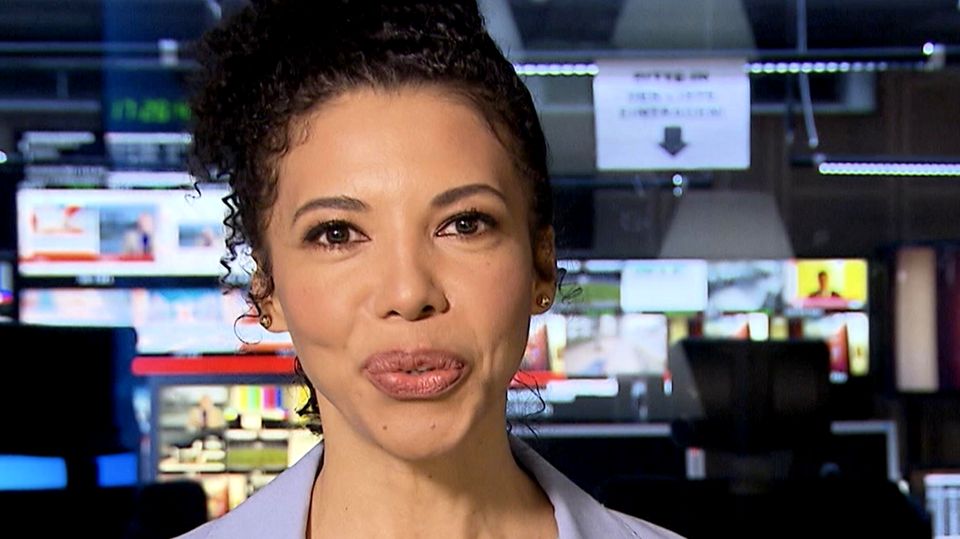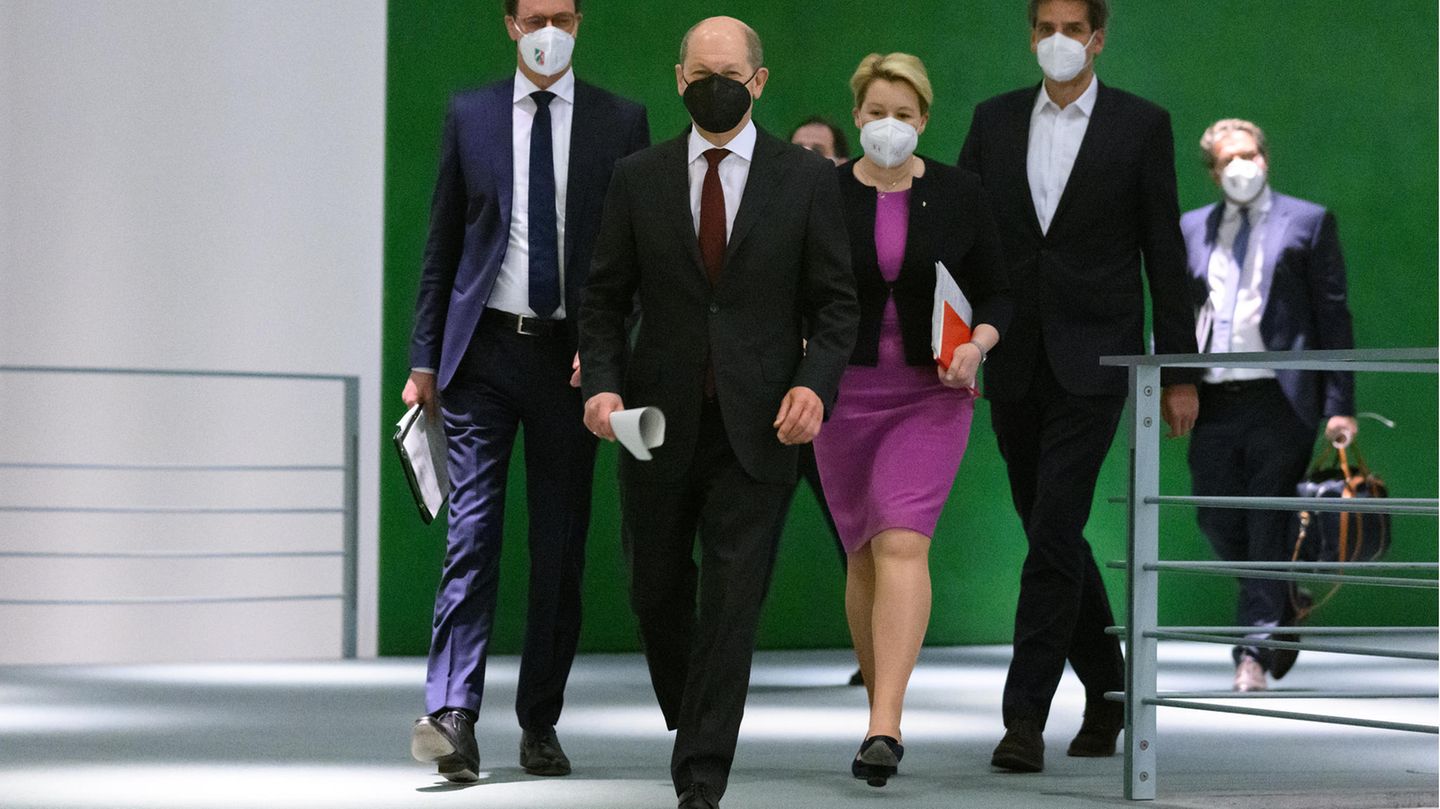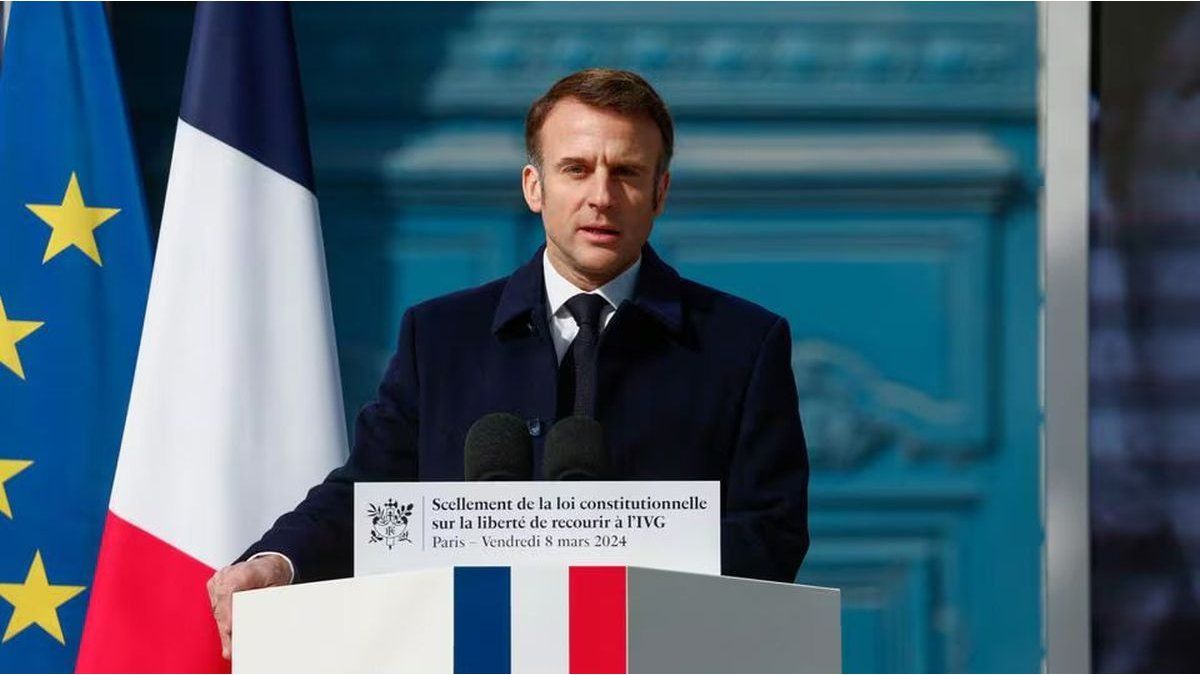Germany wants to help Ukrainian refugees. That much was quickly clear. Less clear and hotly disputed: who should pay for what. Now there is an agreement between the federal and state governments.
When it comes to taking in war refugees from Ukraine, the federal government is taking a new path in terms of integration policy: from June 1, those who arrive should automatically be entitled to basic security according to Book II of the Social Code, as Chancellor Olaf Scholz (SPD) said on Thursday evening after consultations with the heads of the federal states -boss said. This gives the Ukraine refugees access to support from the job center and to language courses, for example. In addition, the federal government supports the federal states with a flat rate of billions for accommodation and integration. The regulations in detail.
Basic security: From June 1st, refugees from Ukraine in Germany should be able to receive basic security. The federal government bears the costs for this. This means that the war refugees are treated like recognized asylum seekers when it comes to benefits for their living expenses.
According to current practice, refugees from Ukraine as recognized war refugees are still subject to the Asylum Seekers Benefits Act according to the Residence Act – this means that they receive less money than Hartz IV recipients, among other things. With the federal-state decision to be included in the basic security according to the Social Security Code (SGB) II, they receive higher salaries. There are other benefits associated with this, such as health care and access to German courses.
Additional billion amount: This year, the federal government will pay the federal states and municipalities a flat rate of two billion euros for the additional expenses for the care and accommodation of the refugees. Of this, 500 million euros are for the costs of the municipalities for accommodating the people from Ukraine and 500 million euros for the expenses already incurred by the municipalities for living expenses. One billion euros will cover other costs, such as childcare and integration into schools, as well as health and care costs. The total amount is made available to the federal states via an increased share of the sales tax.
Connection regulation: Chancellor Olaf Scholz (SPD) and the heads of the federal states want to discuss the development of the refugee situation again at the beginning of November and agree on a regulation for the year 2023.
Starting work: Refugees from the Ukraine can immediately take up work in Germany, and the immigration authorities expressly allow them to take up gainful employment when issuing the residence permit. Approval from the Federal Employment Agency is not required.
distribution: The federal and state governments confirm that the war refugees from Ukraine should be distributed according to the so-called Königstein key, which is primarily based on the economic power of the states. They had already agreed on this in March. The federal government is responsible for the coordination and informs the respective federal states about the forthcoming distributions.
“The countries will show solidarity to support those countries in which a particularly large number of refugees have found refuge,” says the agreement reached on Thursday. The federal government wants to agree compensation for the resulting costs with countries that act as a kind of hub for the distribution of refugees. This should affect Berlin, among other things, where many trains with Ukraine refugees arrive.
Scholz calls regulation for Ukraine refugees “exemplary”
After the consultation, Scholz spoke of a “very far-reaching decision”. This is “exemplary” for how the country should deal with refugees from Ukraine in the future. Berlin’s governing mayor Franziska Giffey (SPD) spoke of a “quantum leap”. Germany is taking “a big step in the right direction in terms of integration policy”.
Scholz rejected the impression that the federal-state decision favored those who had fled Ukraine and created a two-class society among the refugees in this country. The Chancellor pointed out that according to the current legal situation, Ukrainians already have residence status in Germany – and are therefore on an equal footing with recognized asylum seekers. “There is no unequal treatment,” he said.

North Rhine-Westphalia’s Prime Minister Hendrik Wüst (CDU) welcomed the agreement between the federal and state governments to share the costs. “Overall, we have found a reasonable compromise on the distribution of financial responsibility,” said the chairman of the Prime Ministers’ Conference. Help for the refugees from Ukraine is a “national task”, so the federal, state and local governments have to work together.
Some countries would have wished for more, said Wüst. Not only the accommodation, but also the integration of children in schools and day care centers or the care of old people costs money. It is therefore important for the federal states to have a follow-up regulation for refugees who will still come to Germany. The federal government is ready for this, emphasized Wüst.
Source: Stern
David William is a talented author who has made a name for himself in the world of writing. He is a professional author who writes on a wide range of topics, from general interest to opinion news. David is currently working as a writer at 24 hours worlds where he brings his unique perspective and in-depth research to his articles, making them both informative and engaging.




